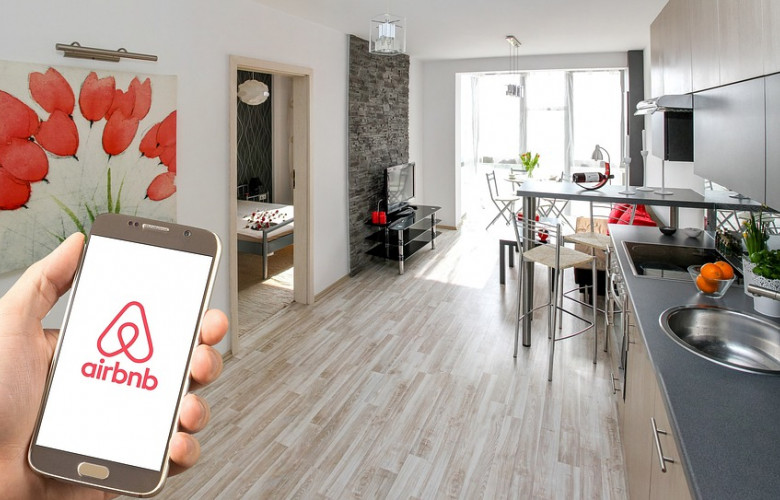"Draconian restrictions are ineffective" says strata manager of Airbnb crackdowns
Contact
"Draconian restrictions are ineffective" says strata manager of Airbnb crackdowns
Dubbed the "toughest laws in the world" by Better Regulation Minister Matt Kean, Airbnb's new regulations in NSW has been met with some backlash.
The new rules target investors who buy up apartments to put on Airbnb, but allows owner-occupiers to continue renting out their spare rooms or entire units while they're away.
Under the changes announced on Tuesday, hosts based in the greater Sydney area will only be able to rent out their homes for up to 180 nights a year, while hosts elsewhere in NSW will be allowed 365 days.
MD of Vantage Strata - National who held the position of President Strata Community Australia (ACT Chapter) for more than five years, Chris Miller, told WILLIAMS MEDIA that while the new legislation provides greater clarity around the parameters, it's massively "counterproductive".
"From a strata managers perspective, there’s great benefit in having clarity over what is and isn’t allowed. There has been a lot of mystery and we seem to be accumulating precedence that contradict one another, so without having a view as to whether Airbnb is a good or a bad thing, (and for the record, I don't think it's a bad thing at all), as a professional working in the strata industry, it's critical to know what the parameters are.
"But to impose Draconian restrictions on how people can use their homes and their investments is counterproductive to some of the inevitably challenging economic times," he said.
"In the property industry, there’s a real convergence of technology and building design that will open up all sorts of challenges and opportunities, and we need to be able to strike the correct balance between progress and prudence," he said.
Airbnb NSW regulations at a glance:
- If the host is not present, that residence can be used for short-term holiday letting up to 180 days per year in Greater Sydney, with 365 days allowed in all other areas of New South Wales
- Councils outside Greater Sydney will have the power to decrease the 365 day limit to no less than 180 days per year.
- Two strikes and you're out policy for guests and hosts who commit breaches of code (noise levels, damage)
- Failure to comply with code of conduct will result in significant penalties of up to $1.1million for corporations and $220,000 for individuals.
- The introduction of the new framework will require changes to existing laws which must be approved by Parliament.
- Read the new short-term holiday letting regulations on the Office of Fair Trading website.
Emma Prgomelja, investment manager of Di Jones, told WILLIAMS MEDIA she believes the current legislation is a great start, but owners should have more rights.
"I applaud the changes to the Strata Schemes Act accordingly but I do feel the owner should still have the right to refuse any sub-let under the Residential Tenancies Act regardless. Currently an owner can't unreasonably refuse. I hate the word unreasonable… it opens the door for interpretation and rarely protects the owner," she said.
"I have had experiences in the past with Airbnb disruptions to neighbors. In the eastern suburbs, you do get more quality personnel coming into properties, but it's nothing you can really regulate, and most of them are travelers," she said.
"It’s definitely becoming a plague. I find myself having to regularly check social media and various other websites to determine whether or not a property I manage is listed on Airbnb, and I appreciate tip-offs from neighbouring properties – most wish to remain anonymous which is unsettling. I believe that if tenants are warned sternly at the early stages of their tenancy, like when they apply for the property or at the lease sign up appointment that sub-letting by Airbnb is prohibited, it may reduce the number of cases we are currently seeing.
"Most neighbors and residents who live in strata title buildings are against Airbnb because of the safety and theft risk it poses to other residents in the building," she said.
"The worst-case scenarios are those I’ve seen on the news. Luckily for me, I’ve only had one experience with one of my own managements having had various complaints from neighbours regarding parties, drug use and colourful language at all hours of the night. The process in which to termination and prove through the system is difficult and lengthy.
"In the end, the owner and I agreed that the only way to end the tenancy was to issue a ‘No Grounds’ with intention to cosmetically upgrade. We saw no other way out," she said.
Echoing this, the CEO of the Accommodation Association of Australia, Richard Munro, said the number one consideration the NSW government must take into consideration is the safety of residents.
"At a time when a man is before court in Melbourne accused of murdering his Airbnb guest and the risks of injury or death posed by residential properties being used for commercial purposes, the number one consideration for the NSW Government when deciding on this issue must be consumer safety," he said.
A mandatory code of conduct will be developed for online accommodation platforms to address issues such as noise and disruptive guests. Guests and hosts who commit serious breaches of the code of conduct within a period of two years will be banned from all short-term holiday platforms for five years.
Melbourne developer, Capital Alliance, has unveiled protection for property owners against short stay platforms, with enforceable safeguards written into the sales contracts of its new developments, including the $250m The Docklands, essentially preventing owners from letting their apartments on Airbnb or similar platforms.
Capital Alliance Founder and Chief Executive, Mohan Du, said the protection is necessary.
"There are numerous benefits to safeguarding our purchasers. Residential apartment buildings are not designed for short stay, so there are subsequent increased owners corporation costs due to wear and tear by having a higher volume of short-stay guests," he said.
Meanwhile, in Japan, Airbnb sent emails to as many as 48,000 hosts throughout Japan who had not met strict new legislative requirements. The emails informed them that their properties would be delisted with immediate effect. Japan's new minpaku homesharing law, which comes into effect on June 15, requires hosts to meet strict requirements in order to legally register as a home-sharing property.
But real estate agent from Raine and Horne in Double Bay, Christophe Serrao, told WILLIAMS MEDIA that he doesn't think there should be any restrictions placed on how long people can rent out their properties for.
"Airbnb is a huge market here in Bondi, I find that it's very popular among the beach side suburbs and the reason being is that there aren't really any hotels along that strip. Besides QT and Adina, which can get pretty expensive and are often fully booked out, which is why Airbnb has become so popular here. You can get much better rates if you book your accommodation through Airbnb.
"People who come here generally want to stay for about week before moving off to other parts of the country. Where else will they go if all the hotels are booked out?" he said.
"We're always getting mixed feedback in regards to Airbnb. Generally it's the older generation who have been living in a building for a long period of time that aren't supportive of having transient people through properties - up until the point they need to rent out their property because they're going away for a week, and they realise they can make a quick buck. Then suddenly it's okay!" he said.
Related reading:
New NSW strata laws increase fines for unauthorised Airbnb by 500%
Rental contracts are being amended to restrict subletting tenants








